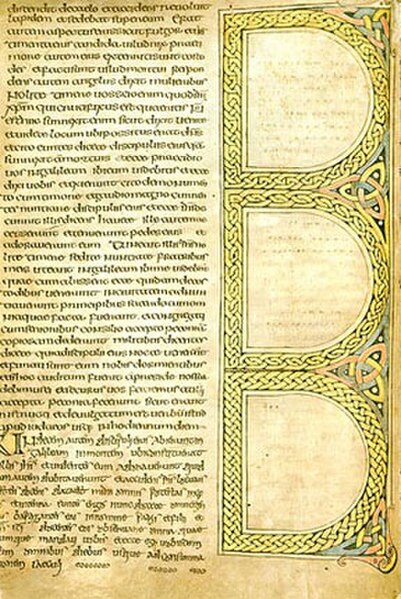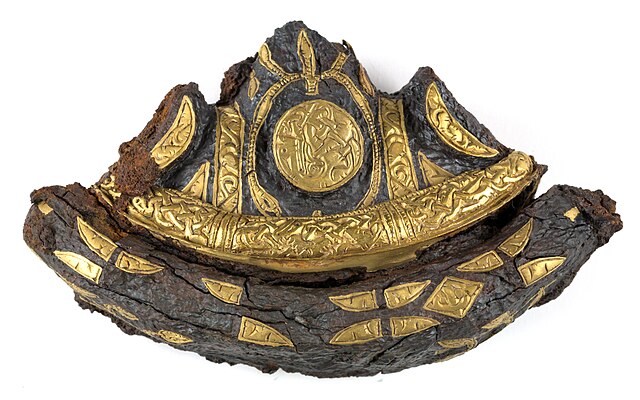Cædmon is the earliest English poet whose name is known. A Northumbrian cowherd who cared for the animals at the double monastery of Streonæshalch during the abbacy of St. Hilda, he was originally ignorant of "the art of song" but learned to compose one night in the course of a dream, according to the 8th-century historian Bede. He later became a zealous monk and an accomplished and inspirational Christian poet.
Memorial to Cædmon, St Mary's Churchyard, Whitby. The inscription reads, "To the glory of God and in memory of Cædmon the father of English Sacred Song. Fell asleep hard by, 680."
Caedmon and Bede depicted in stained glass at St Andrew, Stoke Newington.
Ruins of Whitby Abbey in North Yorkshire, England— founded in 657 by St. Hilda, the original abbey fell to a Viking attack in 867 and was abandoned. It was re-established in 1078 and flourished until 1540 when it was destroyed by Henry VIII.
Northumbria was an early medieval Anglo-Saxon kingdom in what is now Northern England and south-east Scotland.
Page from the Lindisfarne Gospels, c. 700, featuring zoomorphic knot-work.
The colophon to the Gospel of Matthew from the Durham Gospel Fragment, featuring non-zoomorphic interlace patterns.
The Book of Kells, (folio 292r), c. 800, showing the lavishly decorated text that opens the Gospel of John
Sword pommel from the Bedale Hoard, inlaid with gold foil.







